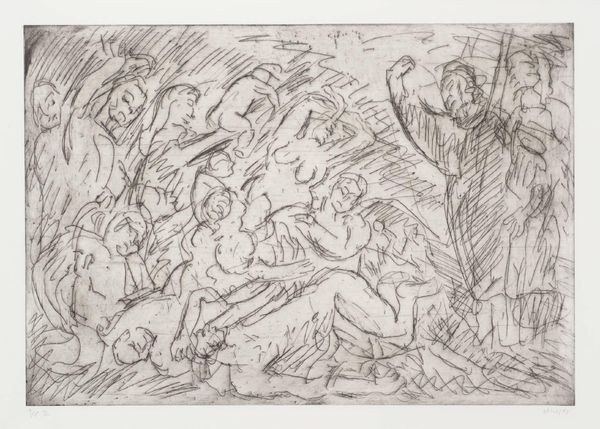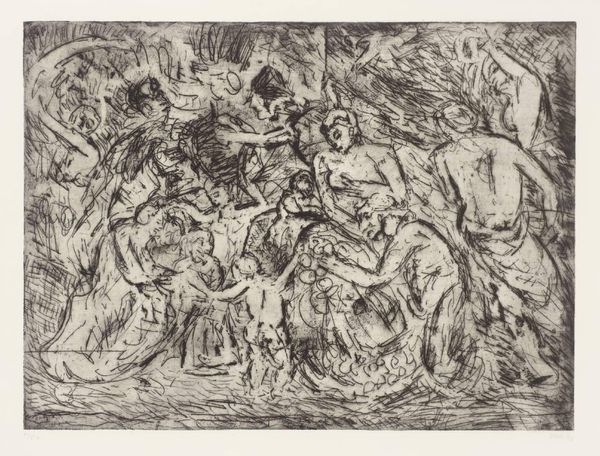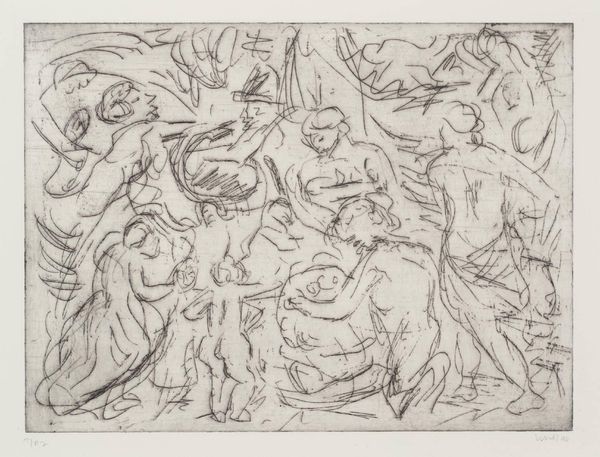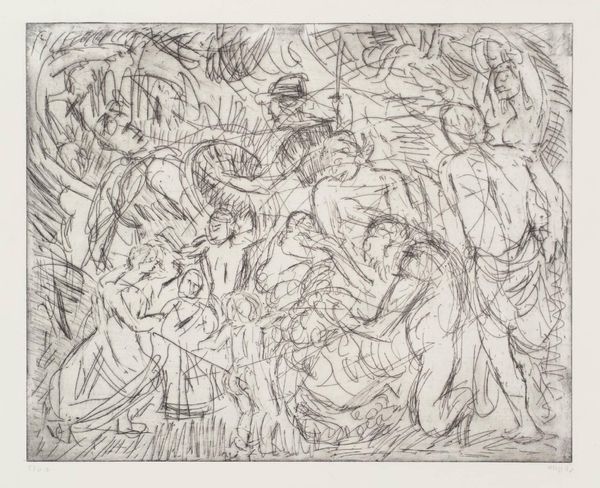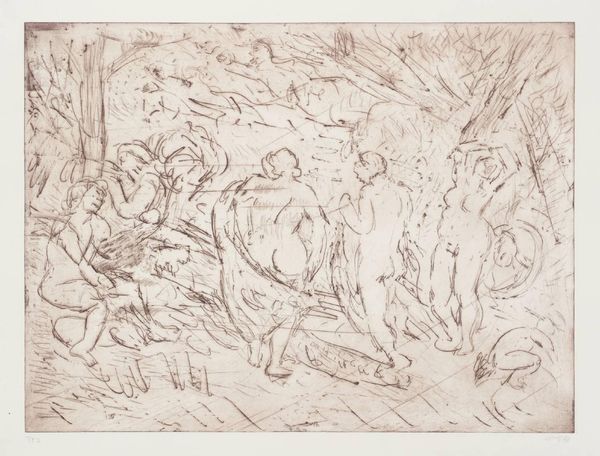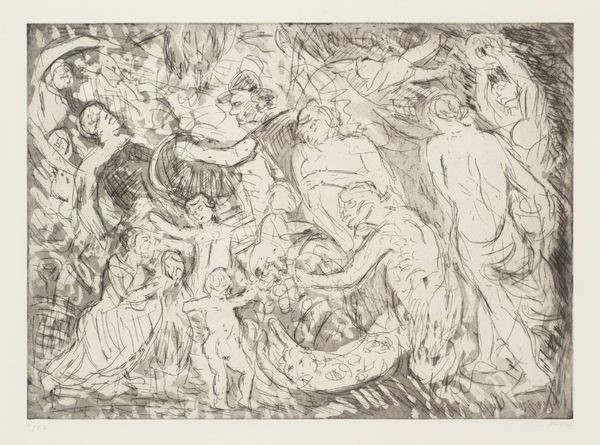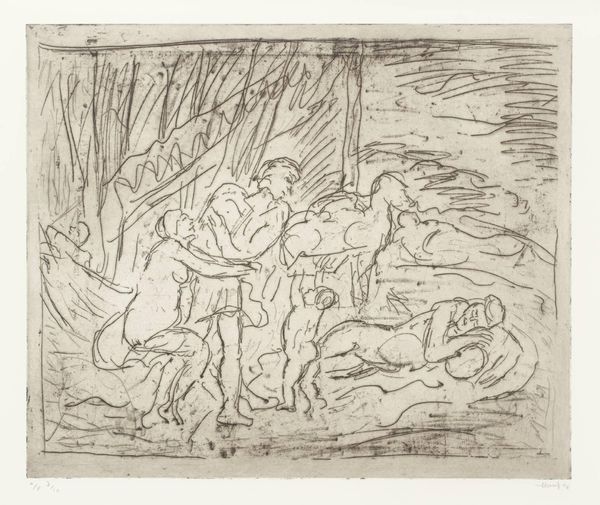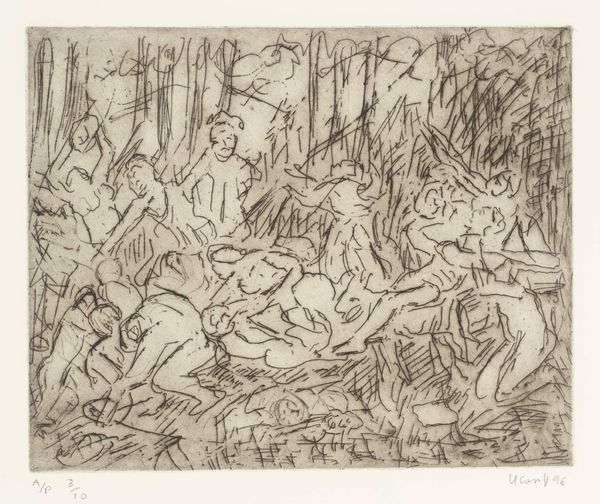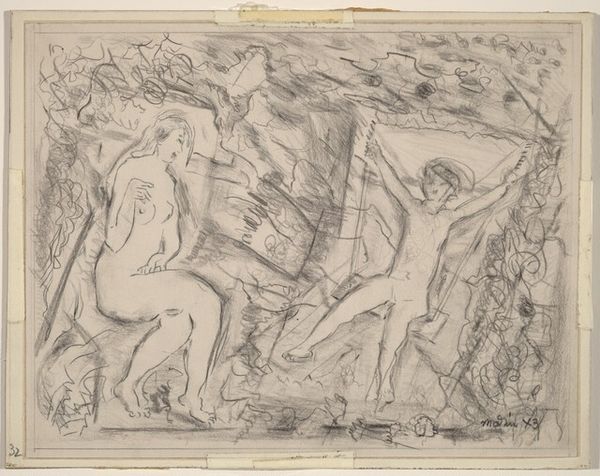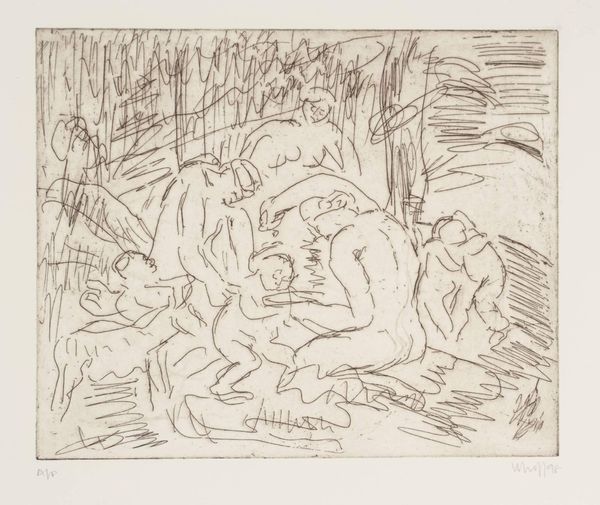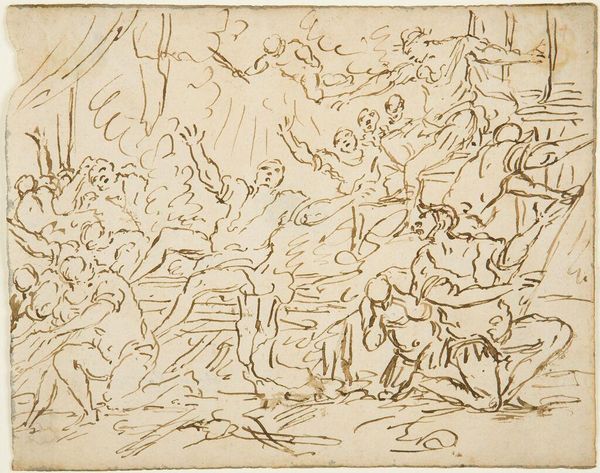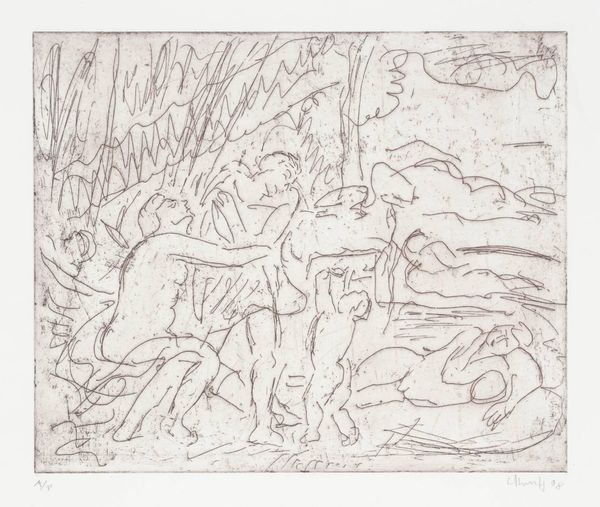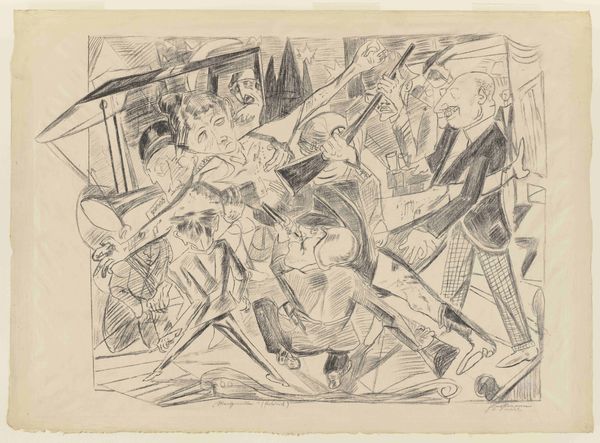
Copyright: © Leon Kossoff | CC-BY-NC-ND 4.0 DEED, Photo: Tate
Editor: So, this is Leon Kossoff’s "The Brazen Serpent (3)." It's hard to pinpoint the date, but Kossoff was active throughout the late 20th century. It looks like an etching. The frenetic lines give it a really chaotic feel. What are your thoughts on how this work interacts with its historical context? Curator: Well, the subject matter itself, drawn from the Book of Numbers, is ripe for historical analysis. Kossoff, working in post-war London, may have been drawn to the story's themes of suffering and redemption. How might its depiction of mass suffering resonate with experiences of the time? Editor: That’s an interesting point. It makes you think about how collective trauma gets represented. Curator: Exactly. And the printmaking medium makes it accessible to a wider audience than a painting might be. Editor: I hadn’t considered that. Thanks, that helps to see it in a new light!
Comments
tate 9 months ago
⋮
http://www.tate.org.uk/art/artworks/kossoff-the-brazen-serpent-3-p11712
Join the conversation
Join millions of artists and users on Artera today and experience the ultimate creative platform.
tate 9 months ago
⋮
This print is one of many etchings executed by Leon Kossoff in response to, and literally in the presence of, oil paintings by old masters; in this case The Brazen Serpent, 1635-40, by Peter Rubens (1577-1640), owned by the National Gallery, London. Tate owns three prints by Kossoff after this Rubens painting (Tate P11710-12). The artist’s ability to explore a number of separate responses while making drawings and prints from a single subject is illustrated in these etchings. This print was never published as an edition; Tate owns the second trial proof.
